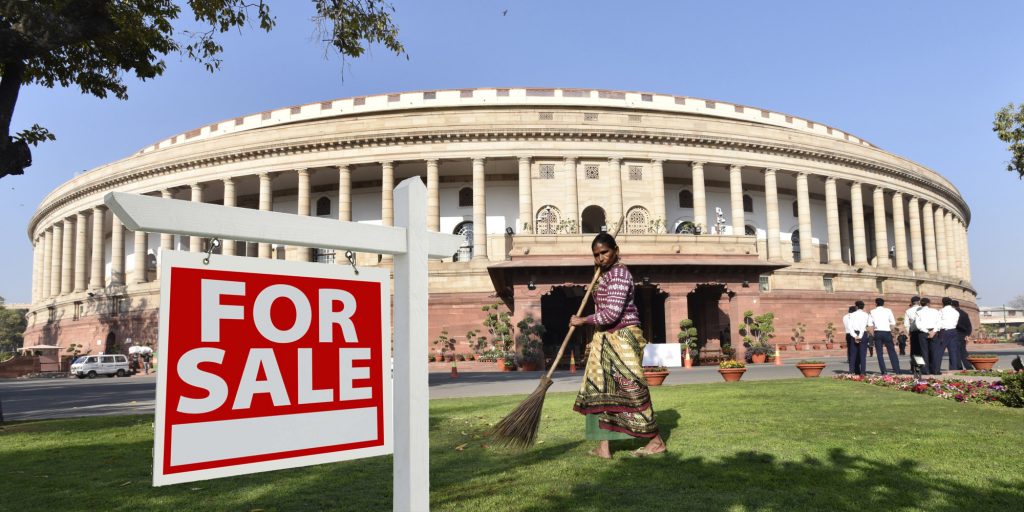
In a written deposition to the parliament’s estimates committee, former RBI governor Raghuram Rajan detailed the manner in which unscrupulous business houses were able to get free pass from the banking system and government. His 17-page note on NPA crisis triggered a debate. The BJP was ecstatic that the report said the bulk of bad loans were sanctioned during the UPA period. The Congress was equally elated as it said Rajan, as RBI governor, had submitted a list of high-profile fraud cases to the Prime Minister’s Office.
The former RBI governor said: “A larger number of bad loans were originated in the period 2006-2008 when economic growth was strong, and previous infrastructure projects such as power plants had been completed on time and within budget. Such rosy scenario normally spurs banks to make mistakes and banks in India committed same. They extrapolated past growth and performance to the future and accepted higher leverage in projects, and less promoter equity. This is the historic phenomenon of irrational exuberance, common across countries at such a phase in the cycle.”
But when growth slowed following the meltdown of 2008, bank loans quickly came under stress. The problem was compounded by problems such as suspect allocation of coal mines, coupled with fear of investigation that slowed decision-making in Delhi, both under the UPA and the NDA. The absence of a bankruptcy code made it even more difficult to write off debt; this led to concretisation of bad loans.
Although loans were given under UPA-I and UPA-II governments, what action has the Narendra Modi government taken against the defaulters? Rajan had written to the PMO in April 2015 seeking “concerted” action in the country’s 10 biggest bank frauds worth Rs 17,500 crore allegedly involving prominent real estate, media and diamond firms. It is interesting that the IBC, so far touted as the biggest reform by the NDA-II, has only helped deal with bankruptcy of relatively smaller companies.
The global crisis that triggered slowdown and rise in NPAs has nothing to do with the UPA regime. But the slowdown that led to rise of NPAs and decline in bank credit were the result of demonetisation and hasty implementation of GST by the Modi government. The Modi government is really more responsible for the banking crisis. According to an RTI reply given by the RBI on an application filed by journalist Nitin Sethi, record 7,990 borrowers of above Rs 5 crore had not repaid Rs 3.71 lakh crore to banks for 1-30 days after due date at the end of March 2018, that is, a four-year high record of early defaulters. These early defaults rose by a record 281.9 per cent over December 2017 when they stood at only Rs 97,200 crore.
With bad loans assuming gargantuan proportions, banks have been pounded to write off a record Rs 1,44,093 crore of bad loans in 2017-18 — up 61.8 per cent from Rs 89,048 crore the previous year
The bitter truth is that Gross NPAs were about Rs 2.66 lakh crore when BJP-led NDA came to power. In 2017-18, gross NPAs increased to about Rs 10.3 lakh crore or 11.2 per cent of advances as against Rs 8 lakh crore, or 9.5 per cent of advances in the previous fiscal. With bad loans assuming gargantuan proportions, banks have been pounded to write off a record Rs 1,44,093 crore of bad loans in 2017-18 — up 61.8 per cent from Rs 89,048 crore the previous year.
The NPAs controversy has taken another dimension with fugitive businessman Vijay Mallya telling reporters in London September 12, that he had met finance minister Arun Jaitley just before leaving India March 1, 2016, and expressed willingness to settle his outstanding debt with the banks concerned. This has given the Opposition enough ammunition to accuse Jaitley of colluding with Mallya and allowing the criminal to flee. Though Jaitley has refuted the allegation, he admitted that Mallya “misused his privilege” as member of the Rajya Sabha and accosted him in Parliament with an offer to settle.
The question is not whether Mallaya met finance minister but how and why he was allowed to leave nation and “lookout notice” against him had been changed from “detain” to just “inform” by the CBI, enabling him to fly out of India? The government must answer this. Mallya’s is not the only case of a high-value debtor fleeing India. In February, jeweller Nirav Modi and uncle Mehul Choksi left India after allegedly defrauding a public sector bank of Rs 13,000 crore. A similar situation unfolded with Bhandari, considered the best networked arms dealer in the country.
According to Rajan, malfeasance and fraud were problems but reluctance of the system to act was an even more serious problem. Nirav and Mallya aren’t the only fraudsters who robbed Indian banks. About Rs 1.6 crore per hour is lost in banking related frauds in India. According to the RBI, more than 23,866 cases of fraud involving Rs 1 lakh crore have been reported over the past five years in various banks. From April 2014 to March 2018, Rs 77,000 crore worth of bank loan frauds took place under the Modi government. The fraud amound increased from Rs 1,542.8 crore in 2008-2009 to Rs 22,469.6 crore in 2017-2018.
In reality, crony capitalists continue to laugh their way to the bank in India. The spate of frauds and the rise in NPAs are ugly manifestations of crony capitalism, where business tycoons thrive not as a result of risk, but as returns on money amassed through nexus with the political class. While politicians help the business class loot the country’s resources and people’s money by manipulating laws, the business class greases the palms of politicians and bureaucrats besides providing huge donations to political parties, especially the one in power. Simply put, the State acting in the interest of business houses at the cost of the masses is resulting in such scams. This needs to be reversed.
The author is an Odisha-based columnist.
